Below, please find a list of people currently involved with IIER in various roles. Our key focus is the integration of macroeconomic theory with resource-based views, financial market analysis, human behavior and the development of systemic views on human economic systems.
Hannes Kunz (President)
 Hannes Kunz holds Masters degrees in Law and Economics from the University of Zurich, and a PhD in Economics from St. Gallen University. Before founding IIER, he worked as a senior manager in a number of industries and as a partner in international management consulting companies with assignments in Europe, the Americas and in Asia. His research focus lies on finance, debt and on energy delivery systems.
Hannes Kunz holds Masters degrees in Law and Economics from the University of Zurich, and a PhD in Economics from St. Gallen University. Before founding IIER, he worked as a senior manager in a number of industries and as a partner in international management consulting companies with assignments in Europe, the Americas and in Asia. His research focus lies on finance, debt and on energy delivery systems.
Hannes: “It is no longer an open question for me as to whether an institution like IIER is required or not, which leaves me no choice but to work for its objectives. We understand so frighteningly little about how human (economic) systems truly work, and yet we live in turbulent times where exactly that knowledge is so dearly required"
Nate Hagens (Board of Directors)
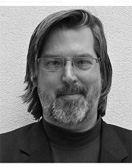 Nate Hagens is member of the board of directors of the Institute for Integrated Economic Research (IIER). He holds a PhD in Natural Resources from the University of Vermont and a Masters Degree in Finance from the University of Chicago. Previously he was President of Sanctuary Asset Management and a Vice President at the investment firms Salomon Brothers and Lehman Brothers. He served on the Board of Post Carbon Institute (PCI) and the Institute for the Study of Energy and Our Future (ISEOF), parent of The Oil Drum, one of the most popular websites for analysis and discussion of global energy issues.
Nate Hagens is member of the board of directors of the Institute for Integrated Economic Research (IIER). He holds a PhD in Natural Resources from the University of Vermont and a Masters Degree in Finance from the University of Chicago. Previously he was President of Sanctuary Asset Management and a Vice President at the investment firms Salomon Brothers and Lehman Brothers. He served on the Board of Post Carbon Institute (PCI) and the Institute for the Study of Energy and Our Future (ISEOF), parent of The Oil Drum, one of the most popular websites for analysis and discussion of global energy issues.
“Ever since I was young I was curious about the larger questions – how things in nature and in our world fit together. Working at IIER allows me to integrate academic research on the supply side: energy, natural resources, environment with the demand side: neuroscience, evolutionary biology, and psychology – and the glue that holds them together: finance, economics and trade. Only from viewing our various crises from a systems perspective will we make the best decisions about the future - we try to do this at IIER”
Myrna Hall (Board of Directors)
 Myrna Hall is Director of the Center for the Urban Environment, and research associate at the department of environmental studies, at State University of New in the College of Environmental Science & Forestry (SUNY-ESF). Her work combines simulation and geographical model using GIS to study the interaction of humans and the environment, focusing on issues of natural resources management and sustainable development. Myrna has written several papers and book chapters on mapping land use change and geographic modeling to analyze economic-ecological interactions. She holds an MS in Natural Resource Management from SUNY-ESF, and a BA in French from the University of Washington in Seattle.
Myrna Hall is Director of the Center for the Urban Environment, and research associate at the department of environmental studies, at State University of New in the College of Environmental Science & Forestry (SUNY-ESF). Her work combines simulation and geographical model using GIS to study the interaction of humans and the environment, focusing on issues of natural resources management and sustainable development. Myrna has written several papers and book chapters on mapping land use change and geographic modeling to analyze economic-ecological interactions. She holds an MS in Natural Resource Management from SUNY-ESF, and a BA in French from the University of Washington in Seattle.
Daniel Lüscher (Board of Directors)
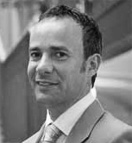 Elektroingenieur EurEta, Wirtschaftsingenieur SVTS, Linienpilot bei der Swissair, Crossair und Swiss, seit 2004 Captain bei der PrivatAir in Genf. Instruktor bei der FFA.
Elektroingenieur EurEta, Wirtschaftsingenieur SVTS, Linienpilot bei der Swissair, Crossair und Swiss, seit 2004 Captain bei der PrivatAir in Genf. Instruktor bei der FFA.
Rembrandt Koppelaar (Research Associate)
 Rembrandt is a Research Associate of the Institute for Integrated Economic Research (IIER). He holds a Bachelor and Master degree in economics from Wageningen University, the Netherlands, and is working towards a PhD student at Imperial College, in that role contributing to IIER’s project on Human Ecosystem Modelling. Previously, he was President of the Association for the Study of Peak Oil & Gas Netherlands. He authored the book “De Permanente Oliecrisis” discussing the end of cheap oil and its consequences (Dutch, Nieuw Amsterdam publishers, 2008), and is managing editor of The Oil Drum, one of the most popular websites for analysis and discussion of global energy issues.
Rembrandt is a Research Associate of the Institute for Integrated Economic Research (IIER). He holds a Bachelor and Master degree in economics from Wageningen University, the Netherlands, and is working towards a PhD student at Imperial College, in that role contributing to IIER’s project on Human Ecosystem Modelling. Previously, he was President of the Association for the Study of Peak Oil & Gas Netherlands. He authored the book “De Permanente Oliecrisis” discussing the end of cheap oil and its consequences (Dutch, Nieuw Amsterdam publishers, 2008), and is managing editor of The Oil Drum, one of the most popular websites for analysis and discussion of global energy issues.
“My involvement with IIER was a logical step after learning about economics and its general disregard of the importance of resources. I see it as essential to work towards a new basis for economic decisions, being fundamentally underpinned by the availability and cost of mineral and energy resources.”
Alexandre Poisson (Research Associate)
 Alex recently joined the IIER team (fall 2012) as a Research Associate. He is currently a first year PhD. candidate at the State University of New York, in Syracuse (SUNY-ESF) in Prof. Charlie Hall’s systems lab. He received his Master’s degree in 2011 at McGill University, in Montreal, Canada (Geography, M.Sc.). His thesis was on the implications of non-equilibrium thermodynamics for Nicolas Gerogescu-Roegen’s biophysical economics, or in other words the energy limits to long term economic evolution.
Alex recently joined the IIER team (fall 2012) as a Research Associate. He is currently a first year PhD. candidate at the State University of New York, in Syracuse (SUNY-ESF) in Prof. Charlie Hall’s systems lab. He received his Master’s degree in 2011 at McGill University, in Montreal, Canada (Geography, M.Sc.). His thesis was on the implications of non-equilibrium thermodynamics for Nicolas Gerogescu-Roegen’s biophysical economics, or in other words the energy limits to long term economic evolution.
“For my PhD., I hope to work on changes in the energy return on investment (EROI) of nuclear power systems in time, and especially estimate the EROI of more advanced (Gen III+,IV) reactor designs. This will integrate well with the broader work I will be doing at IIER: helping to create a dynamic EROI calculator for analysis of power generation systems at the process level."
Reiner Kümmel (Scientific Advisory Board)
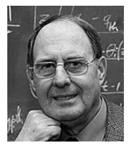 Since 1974 Reiner Kümmel has been a professor of theoretical physics at the University of Würzburg, Germany. His fields of research are superconductivity, semiconductor physics, and energy science. He semi-retired in 2004. He has written a large number of papers and books on the relationship between economic growth and energy consumption. In his latest work, The Second Law of Economics: Energy, Entropy, and the Origins of Wealth, he argues that we need to begin to incorporate energy into economics (Springer 2011). His first paper on thermodynamics and economics was the 1977 “Energy and Economic Growth” (“Energie und Wirtschaftswachstum”), followed up by the 1980 book Growth Dynamics of the Energy-dependent Economy and the 1984 book Energy and Justice (Energie und Gerechtigkeit). He holds a PhD in physics from University of Frankfurt/Main, based on thesis research done under American theoretical physicist and only winner of two Nobel prizes in physics John Bardeen at the University of Illinois, Urbana.
Since 1974 Reiner Kümmel has been a professor of theoretical physics at the University of Würzburg, Germany. His fields of research are superconductivity, semiconductor physics, and energy science. He semi-retired in 2004. He has written a large number of papers and books on the relationship between economic growth and energy consumption. In his latest work, The Second Law of Economics: Energy, Entropy, and the Origins of Wealth, he argues that we need to begin to incorporate energy into economics (Springer 2011). His first paper on thermodynamics and economics was the 1977 “Energy and Economic Growth” (“Energie und Wirtschaftswachstum”), followed up by the 1980 book Growth Dynamics of the Energy-dependent Economy and the 1984 book Energy and Justice (Energie und Gerechtigkeit). He holds a PhD in physics from University of Frankfurt/Main, based on thesis research done under American theoretical physicist and only winner of two Nobel prizes in physics John Bardeen at the University of Illinois, Urbana.
Joseph Tainter (Scientific Advisory Board)
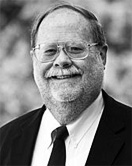 Joseph Tainter is currently Professor of Sustainability in the Department of Environment and Society at Utah State University, Logan. Previously he directed the Cultural Heritage Research Project in Rocky Mountain Research Station. He worked on issues of sustainability before the term became common, including his highly-acclaimed book The Collapse of Complex Societies (Cambridge University Press, 1988). He is co-editor of The Way the Wind Blows: Climate, History, and Human Action (Columbia University Press, 2000), a work exploring past human responses to climate change. With T. F. H. Allen and Thomas Hoekstra he wrote Supply-Side Sustainability (Columbia University Press, 2003), the first comprehensive approach to sustainability to integrate ecological and social science. Dr. Tainter has taught at the University of New Mexico and Arizona State University. He received his Ph.D. in Anthropology from Northwestern University in 1975.
Joseph Tainter is currently Professor of Sustainability in the Department of Environment and Society at Utah State University, Logan. Previously he directed the Cultural Heritage Research Project in Rocky Mountain Research Station. He worked on issues of sustainability before the term became common, including his highly-acclaimed book The Collapse of Complex Societies (Cambridge University Press, 1988). He is co-editor of The Way the Wind Blows: Climate, History, and Human Action (Columbia University Press, 2000), a work exploring past human responses to climate change. With T. F. H. Allen and Thomas Hoekstra he wrote Supply-Side Sustainability (Columbia University Press, 2003), the first comprehensive approach to sustainability to integrate ecological and social science. Dr. Tainter has taught at the University of New Mexico and Arizona State University. He received his Ph.D. in Anthropology from Northwestern University in 1975.
Charles A. Hall (Scientific Advisory Board)
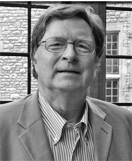 Charles is a distinguished Professor at State University of New in the College of Environmental Science & Forestry (SUNY-ESF). He has had a diverse career at Brookhaven Laboratory, the Ecosystems Center at the Marine Biological Laboratory, Woods Hole, Cornell University, University of Montana, and, for the last 20 years worked at SUNY-ESF. His work has involved ecosystem analyses of streams, estuaries and tropical forests, energy and its relation to economics and environment, and the energy return on energy investment (EROEI). He has published over a 100 papers on these topics and a number of books. His latest work, Energy and the Wealth of Nations written together with Klitgaard (Springer 2011) dives into the wealth explosion of the 20th century, its relation to fossil fuels, and whether alternative energy sources meet the biophysical needs of our economy. Charles Hall holds a Ph.D. in Zoology from the University of North Carolina, supervised by renowned systems ecologist Howard Odum.
Charles is a distinguished Professor at State University of New in the College of Environmental Science & Forestry (SUNY-ESF). He has had a diverse career at Brookhaven Laboratory, the Ecosystems Center at the Marine Biological Laboratory, Woods Hole, Cornell University, University of Montana, and, for the last 20 years worked at SUNY-ESF. His work has involved ecosystem analyses of streams, estuaries and tropical forests, energy and its relation to economics and environment, and the energy return on energy investment (EROEI). He has published over a 100 papers on these topics and a number of books. His latest work, Energy and the Wealth of Nations written together with Klitgaard (Springer 2011) dives into the wealth explosion of the 20th century, its relation to fossil fuels, and whether alternative energy sources meet the biophysical needs of our economy. Charles Hall holds a Ph.D. in Zoology from the University of North Carolina, supervised by renowned systems ecologist Howard Odum.
Reader Comments
Add new comment